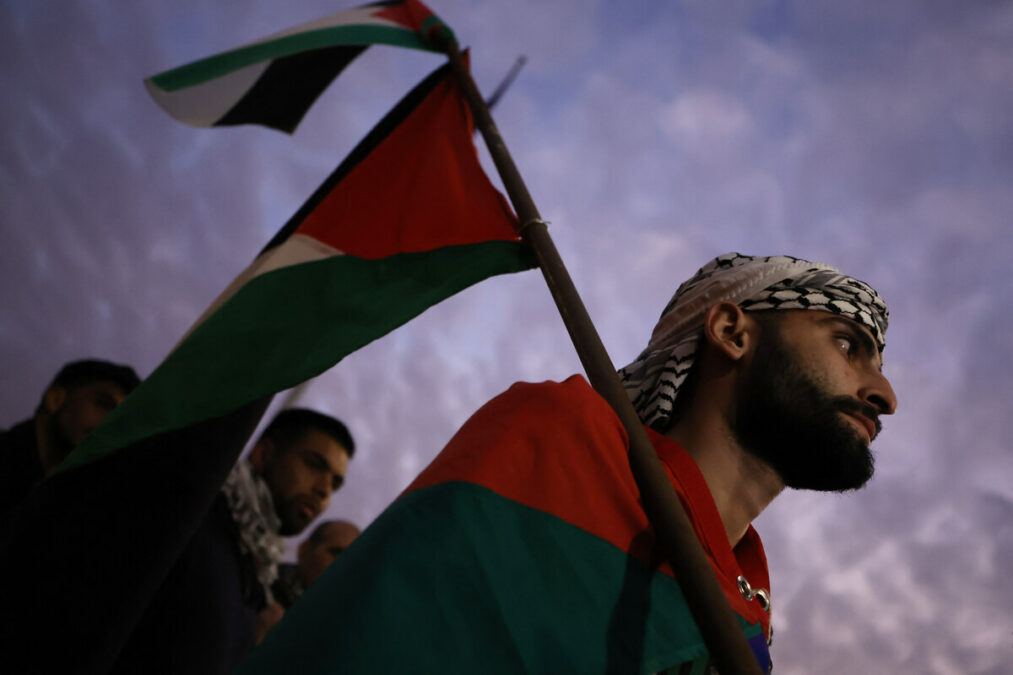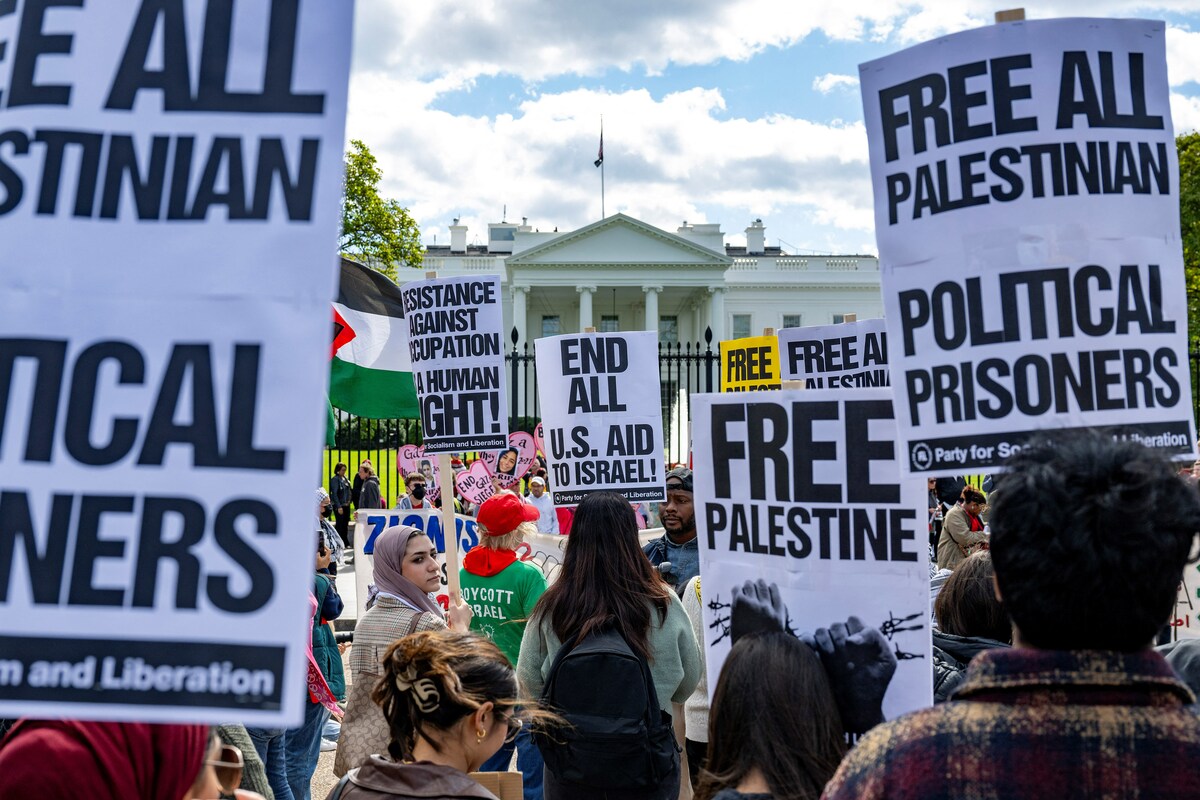Dubai, UAE – Just when we thought that Saudi Arabia and Israel were on the brink of normalization which could potentially remake the Middle East, a fresh Israeli-Palestinian conflict has once again thrown the region into chaos. This has not only ended the prospect of a Saudi-Israel reconciliation in the short term but also created the possibility of wider conflict in the region, should Iran-backed Hezbollah also join the war.
As has been the case with every eruption of Israeli, Palestinian hostility, it has far-reaching local, regional and also a global geopolitical fallout. Locally it has generally been about the untold suffering of Palestinian civilians. But this time hundreds of Israeli civilians have similarly suffered, with hundreds of them being killed during the incursion of Hamas militants in Israel on October 7 that triggered the ongoing war.
At the regional level, it tests the fragile relationship between Israel and its Arab neighbours. The conflict this time has been much more disruptive as it has upended the imminent Saudi-Israeli normalization deal. The Biden administration has been pushing to establish formal ties between Israel and Saudi Arabia, two top US allies in the Middle East. Saudi Arabia, positioning itself as a key influencer in the Middle East and the Islamic world, is seeking substantial military aid from the United States, cooperation in developing its civilian nuclear program, and significant concessions from Israel to Palestinians. But as the efforts towards a deal were making progress, it looked Israel was in no mood to give in to Palestinian demands. The chances of any concession also appeared dim considering Israel is currently ruled by the most rightwing government in its history. But it seems that Palestinians were not ready to be bypassed by Saudis and the other Arab countries in their bid to make up with Israel, a factor that might have, in part, triggered pre-emptive Hamas strike.
At a global level, the war can easily be seen as a part of the ongoing US-China tug of war for the control of Middle East. Ever since China-brokered Saudi-Iran reconciliation in March this year and subsequent tentative efforts by Beijing to work for a deal between Israel and Palestinians, the US grew wary of growing Chinese influence in the region. In recent months, Washington has made strenuous efforts to shore up its sway with the Arab countries, especially Saudi Arabia, the biggest Arab power. It embarked on two ambitious projects to bring the region decisively back into its orbit: one, a grand reconciliation between Saudi Arabia and Israel. Second, and second, the India-Middle East- Europe Economic Corridor whose primary goal is to boost economic development by enhancing connectivity and fostering economic integration among Asia, the Arabian Gulf, and Europe. It comprises two distinct corridors: the east corridor linking India to the Arabian Gulf and the northern corridor connecting the Arabian Gulf to Europe. Now, the future of both seems uncertain in the near future. So, it is a gain for both Iran and China.

Much will depend on the outcome of the war and how the suffering that it inflicts plays around the world, especially among Arabs. A prolonged Israeli blockade will not go down well with Arab public, making it further difficult for their leaders to mend fences with Israel.
The lingering Israel-Palestinian conflict has always polarized the world, more so, during its recurrent flare-ups. It brings three Abrahamic religions – Christianity, Islam, Judaism – and their followers into conflict with one another. However, the Christian countries largely support Israel’s position on most issues, although they have often criticized its human rights record and treatment of Palestinian civilians. But this has hardly deterred Israel from its actions in Palestine or from its projects to settle Jews in occupied territories, a source of deep Palestinian grievance and anger.
Perpetual siege
Since 2008, Israel has conducted four major military operations in Gaza, resulting in significant casualties and widespread destruction. The assaults occurred in 2008, 2012, 2014, and most recently in 2021.
During these operations, several thousand Palestinians lost their lives, including a substantial number of children, while thousands of homes, schools, and office buildings were reduced to rubble. Rebuilding efforts have been severely hampered by a blockade that prevents essential construction materials like steel and cement from reaching Gaza.
The 2008 assault raised international alarm as Israel was accused of using internationally banned weaponry, including phosphorus gas. In 2014, the conflict, known as Operation Protective Edge by the Israelis, lasted for 50 days and resulted in over 2,100 Palestinian casualties, with 1,462 civilians and almost 500 children among the dead. Additionally, approximately 11,000 Palestinians were injured, and the destruction of 20,000 homes left half a million people displaced.
These operations have sparked widespread condemnation and calls for a peaceful resolution to the longstanding Israeli-Palestinian conflict. The international community continues to advocate for a comprehensive solution that addresses the root causes of the conflict and ensures the safety and well-being of all those affected by these devastating events. But there has been no progress, largely because Israel has shown no interest in settling the issue with Palestinians. Its position has further hardened following the takeover of a rightwing government. This guarantees further bloodshed in future if the fresh conflagration doesn’t wake up the world to the desperate need to address the conflict once and for all.








